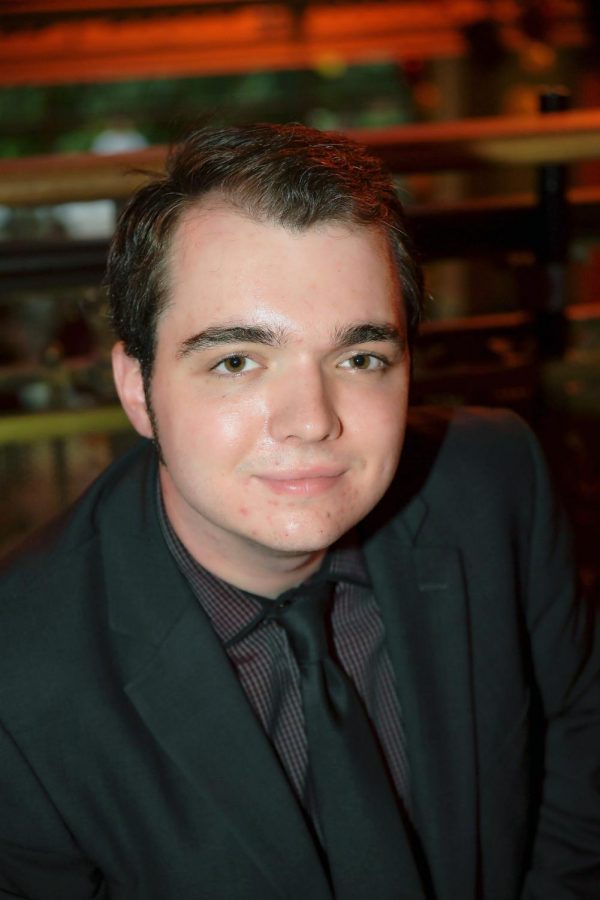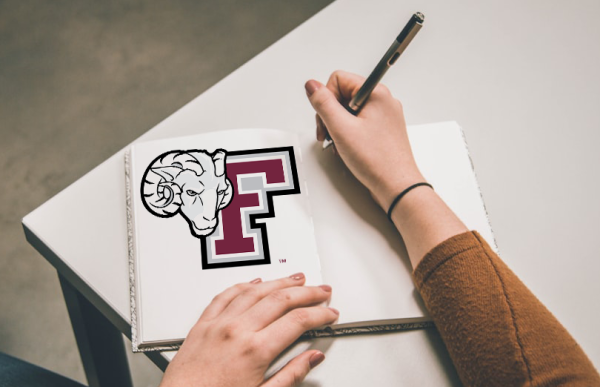Henry Zinks Researchs Language Bias in Psychology, Gender Gap in Positivity
Henry Zink, FCRH ’20, understands the power of words more than anyone. It is the focus of his research at the EEG Lab for Language and Multilingualism Research on campus, run by Sarah Grey, Ph.D.
Most of the lab focuses on studying the difference between bilinguals and monolinguals by using an electroencephalogram (EEG), a series of electrodes placed on a person’s head that measures the brain’s electrical output. Zink, a psychology major, has worked on various projects in the lab as a research assistant since last year. He was even listed as a co-author on a study that was presented at a conference in Montreal this past fall.
However, Zink said he wanted to take a slightly different approach for his senior thesis project for the Honors program.
“I was looking for something that fused our linguistics work with psychological theory, which is my field,” he said.
The official title of his study is “Effects of Western Culture and Sex Differences on Electrophysiological Brain Responses to Language-Induced Self-Positivity Bias.” It focuses on the way people associate different positively or negatively connotated words with themselves.
“There’s a natural tendency for people to associate positive words with themselves and disassociate negative adjectives with themselves,” Zink said. “What I’m doing is looking at how those results are present in our brain’s electrical activity.”
Zink said other researchers have show that there is a significant response in the brain.
His research is specifically focused on how two factors affect the response: a Western cultural setting and biological sex.
To collect his data, Zink fits participants with an EEG cap and then asks them to read a series of sentences.
While they are reading, he monitors their brainwaves on the EEG. After they leave, he analyzes the data to determine whether the factors he is researching had an effect on the results.
Zink said that working on other projects in the lab with. Grey has helped prepare him to lead his own project.
“I had learned a lot about research methods in my classes, but getting to actually take part in the research process gave me a much keener insight into a lot of the intricacies and details that go into a study,” he said.
While there has been research on this topic before, Zink noted that it is important for scientists to continue to reevaluate their conclusions.
“That’s how a lot of this research works,” Zink said. “You find something and then you either add something or you tweak it or you see if it’s replicable in your own study. More studies in more contexts equals more concrete information.”
Zink is still in the middle of collecting data. He hopes that by the end of the project he will have around 30 participants in the study.
In addition to defending his thesis, a process where his mentor and other professors will critique his findings and ask questions while determining his grade, Zink will also present his project at the Undergraduate Research Symposium in April.
Although Zink intends to pursue a career in psychology, he said he is not sure he will continue his research on this topic after his thesis. However, he said he still thinks the experience running his own research study will help him on his professional path.
“It’s definitely been a big part of my application process to graduate school,” he said. “In psychology, as in many of the other social sciences, research experience is a very key part of admission to a doctoral program.”
If Zink could give advice to anyone looking to pursue research later on down the road, he would tell them to get started now.
“The ability to lead a research project, which involves applying for a grant, doing the background research and designing the stimuli, running the experiment yourself and presenting the findings, I believe that has been looked on very favorably by the graduate schools I applied to,” Zink said.
He said he encourages anybody interested in research post-graduation to look into opportunities to do research in undergrad.












































































































































































































